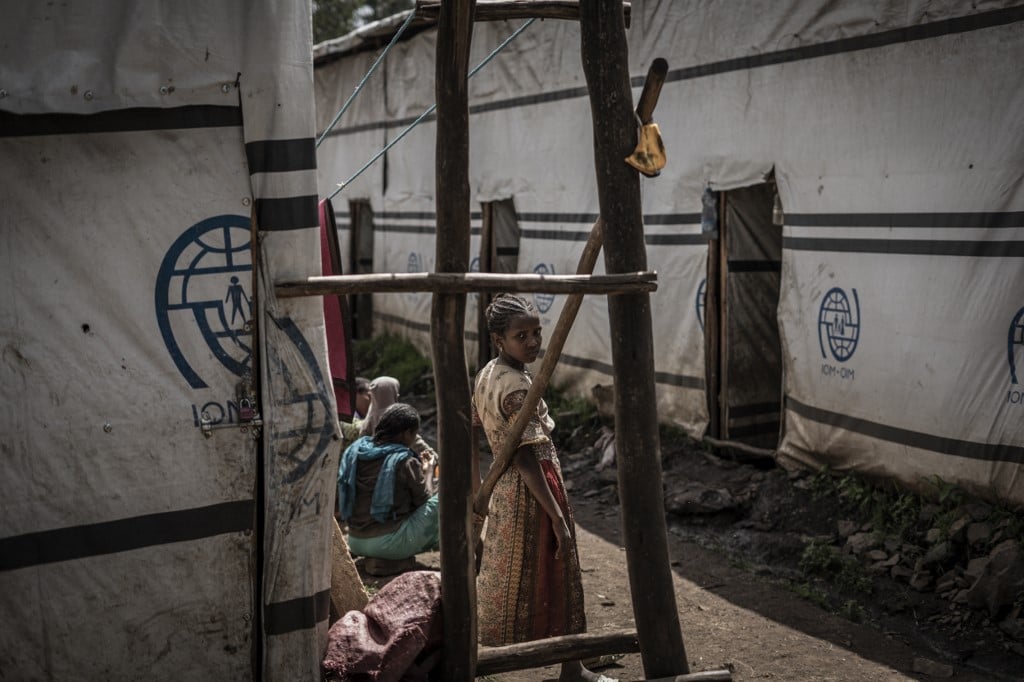In a rare move reserved for war-torn countries and failed states, the IMF has not released a GDP growth forecast for Ethiopia in its latest World Economic Outlook for the next four years.
The only other countries excluded from the projections are Afghanistan, Libya and Syria.
While the IMF makes no explicit reference to the Tigray war, analysts say that the ongoing conflict is the most likely reason why the multilateral lender has withheld its predictions for Ethiopia’s economic recovery in 2022.

The missing projections are a bad sign that could sour Ethiopia’s outlook for investors further, says Patrick Heinisch, an economic researcher at Germany-based commercial bank Helaba.
“Missing data forecasts naturally have an impact on the business environment. Every investor makes an in-depth analysis of the target country before making the investment. If data for Ethiopia are not available, companies ask themselves why.
“Even for conflict-ridden countries like Somalia or South Sudan projections are available. That may hold back investors and consequently desperately needed foreign exchange,” he says.
Sanctions countdown
The lack of macroeconomic data is just the beginning of Ethiopia’s growing list of economic woes.
In early October, the Ethiopian government expelled seven UN officials from Addis Ababa for allegedly interfering in internal politics. This further strained already tense relations with the international community and heightened the risk of sanctions.
The EU parliament demanded an “immediate cessation of hostilities by all parties” in October and called for wide range sanctions, including an arms embargo, against all the belligerents in the ongoing war.
The United States is also mulling a full range of options, including sanctions, in response to the worsening crisis, State Department spokesman Ned Price said on Tuesday.
The Ethiopian army launched a ground offensive in conjunction with allied Amhara militias to push Tigray forces out of the northern Amhara region on Monday, the region’s ruling Tigray People’s Liberation Front (TPLF) said.
Previous attempts to lobby the government to remove a blockade that is obstructing humanitarian aid has led to widespread famine in the Tigray region, the U.N. say.
“If the new Ethiopia National Defense Force (ENDF) offensive leads to human rights violations or attacks against civilians, as were observed during ENDF’s occupation of Tigray until June, the west could lose patience,” Heinisch says.
Yet before all out sanctions, experts believe that an initial step may first be removing Ethiopia from the US’s lucrative African Growth and Opportunity Act (AGOA).
“Ethiopia’s exports under AGOA account for almost half of its exports to the US. Most AGOA exports are concentrated in the textile industry which is a very labour intensive industry. The removal of AGOA membership could translate into massive job losses,” says Heinisch.
Many fear a worst case scenario where the current unresponsive nature of the government will eventually turn Ethiopia into a regional pariah, akin to Eritrea or the former regime in Sudan.
Wage of warfare
As the war in Tigray turns a year old in November, the economic cost of the conflict is stacking up.
Prime Minister Abiy Ahmed said in July that infrastructure repair could cost up to $2bn, with more damage expected as the government intensifies its offensive.
Ethiopia’s debt service suspension initiative (DSSI) also runs out at the end of the year, leading to the full resumption of external payments in 2022. The government applied to the IMF for a new deal in September to restructure nearly $30 billion of external debt, and awaits the IMF executive board’s approval of disbursements from the Extended Credit Facility and Extended Fund Facility.
If Ethiopia can achieve external debt restructuring in the first half of next year, it will be a success for the government, says Heinisch.
Ultimately, as the war drags on with no end in sight, a negotiated ceasefire between both sides is the most crucial step to revamping investor confidence, he adds.
Want to continue reading? Subscribe today.
You've read all your free articles for this month! Subscribe now to enjoy full access to our content.
Digital Monthly
£8.00 / month
Receive full unlimited access to our articles, opinions, podcasts and more.
Digital Yearly
£70.00 / year
Our best value offer - save £26 and gain access to all of our digital content for an entire year!
 Sign in with Google
Sign in with Google 



